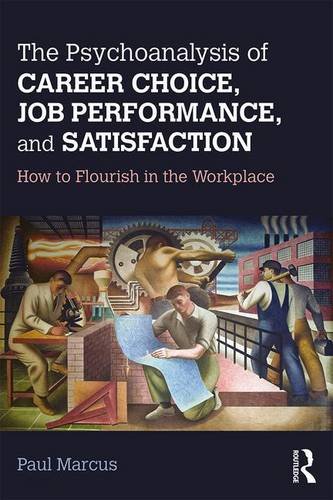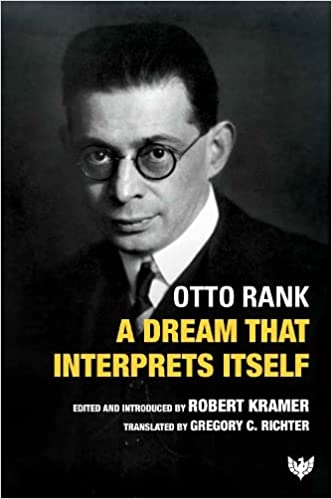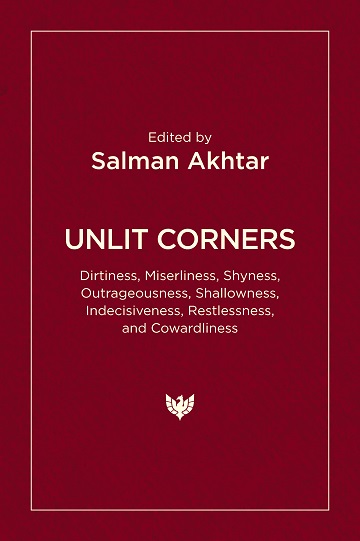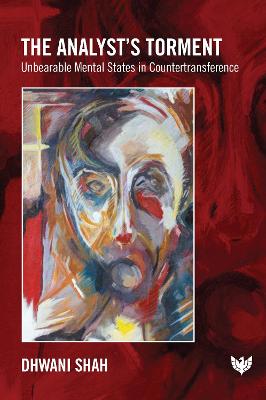First Thoughts: A Psychoanalytic Perspective on Beginnings
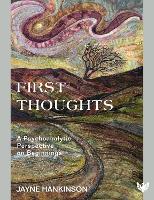
Book Details
- Publisher : Karnac Books
- Published : November 2021
- Cover : Paperback
- Pages : 274
- Category :
Psychoanalysis - Catalogue No : 95811
- ISBN 13 : 9781912691265
- ISBN 10 : 9781912691
There are currently no reviews
Be the first to review
‘…any Psychoanalyst must find his own way and come upon well-known and well-established theories through experiences of his own realisations.’ So says W. R. Bion in his Commentary in Second Thoughts. In First Thoughts, Jayne Hankinson does just this. She presents a personal account of her own ‘realisations’ and discoveries during an attempt to give thought to ‘beginnings’. She explores the meaning and relevance of creation myths, leading to a deep realisation of how they unconsciously represent and shape much of our lives, even today. This exploration meanders through the Garden of Eden, leaving with a realisation that there is an ‘Adam’ and ‘Eve’ aspect in dynamic tension within each of our minds.
This serpentine journey becomes a ‘hermeneutic loop’ in which dissatisfaction with parts of psychoanalytic theory leads to an engagement in the phenomena of beginnings and a consequent reappraisal and reinterpretation, via a closer look at Sigmund Freud, Melanie Klein, Donald Winnicott, and Wilfred Bion to formulate an understanding of what their ‘first thoughts’ may be. The book ends with the author’s own creation myth reshaped and a deeper awareness of how important ‘beginnings’ are.
Reviews and Endorsements
I get to review many manuscripts and book proposals and hardly ever come across work with the degree of freshness and relevance shown by Jayne Hankinson’s thinking. I have gradually become convinced that the ideas constitute original thinking and that they will be found clinically relevant by a wide variety of readers.
Chris Mawson, Training and Supervising Analyst of the British Psychoanalytical Society
In this enjoyable book, Jayne Hankinson presents a rich blend of personal experience and reminiscence with an exploration of historical writings, creation myths, and psychoanalytic ideas, offering a range of interesting insights into the notion of beginnings and how they shape individuals’ lives and thinking.
Armand D’Angour, Professor of Classics, Jesus College Oxford
In finding her own way of being a psychoanalyst, Jayne Hankinson has used her own unease with the foundational texts as the thread for a search through a wider literature encompassing myths, science, literature, and approaches to sexuality in her determination to find her own way. This is a brave, honest record of that search.
Lesley Caldwell, Psychoanalysis Unit, University College London
In this ambitious and wide-ranging book, Jayne Hankinson has undertaken a remarkable journey into the phenomenon of “beginnings”. Any reader wary, or indeed weary, of hermeneutics will discover here a lucid and highly accessible description of this method of enquiry. The result is an authoritative but also deeply personal text that will speak to all who are interested in personal or professional identity, both within the psychotherapeutic community and beyond. Along the way, she explores the purpose and evolution of creation myths, wherever they may be found. She examines their role in organised religion, where she makes a convincing argument that they frequently function to justify a particular present, rather than being “structures which represent a search for the truth”.
However, the book is not just or even primarily about beginnings as found in religious thought. Rather, she goes on to apply these insights to the foundations or, as she terms them, the “first thoughts” of psychoanalysis, and, in particular, the British school of psychoanalysis, where she identifies a parallel process – that of restriction rather than freedom of thought. Delving more deeply still, she argues that creation myths can be understood as structures that contain, and even solve, our existential questions, and offers the profound observation that, in the absence of such structures, “being” is impossible. Having identified the problem, she goes on to present her own creation myth – a structure which enables rather than impedes creativity and growth. This is a work which cuts to the heart of beginnings, and says something important about how the way we understand beginning shapes us psychologically and existentially. In doing so, it touches us all.
Simon du Plock, Professor of Psychology, Metanoia Institute
Table of Contents
A tribute to Chris Mawson
Part I
Dissatisfaction
1. My beginning
2. Creation myths
3. Presence and absence
4. The dispute
5. The chaos or the word
6. The binding of Hans
7. Circularity and straight lines
8. Initial thoughts
Part II
Engaging in the phenomenon
9. In the beginning
10. The garden
11. Conception stories
12. Vicissitudes of penetration
13. Magical structures
14. Wholeness
15. Tentative thoughts
Part III
Reappraisal
16. Freud’s first thoughts
17. Klein’s first thoughts
18. Winnicott’s first thoughts
19. Bion’s first thoughts
20. Gathered thoughts
Part IV
Reformulation
21. Modus vivendi
22. An elemental structure
23. Narcissism
24. Threads
25. To myth or not to myth
26. Final thoughts
References
Acknowledgements
About the author
About the Author(s)
Jayne Hankinson is a member of the British Psychoanalytic Association and the International Psychoanalytical Association, and has been working in the field of psychoanalysis for almost ten years. Prior to her training, she was a psychodynamic counsellor, and has been engaged in either training or post-qualification counselling and psychoanalysis for about twenty years. During this time she has worked in a variety of counselling agencies, and has also spent two years at an NHS psychotherapy and psychiatric unit. Presently, she has a private psychoanalytic practice, and works as a supervisor, near High Wycombe in Buckinghamshire. Before she entered into the counselling and psychoanalytic world, she was a secondary school science teacher.
Customer Reviews
Our customers have not yet reviewed this title. Be the first add your own review for this title.
You may also like
The Psychoanalysis of Career Choice, Job Performance, and Satisfaction: How to...
Paul Marcus
Price £36.99
Unlit Corners: Dirtiness, Miserliness, Shyness, Outrageousness, Shallowness,...
Salman Akhtar
Price £23.39
save £2.60
The Analyst’s Torment: Unbearable Mental States in Countertransference
Dhwani Shah
Price £24.29
save £2.70




